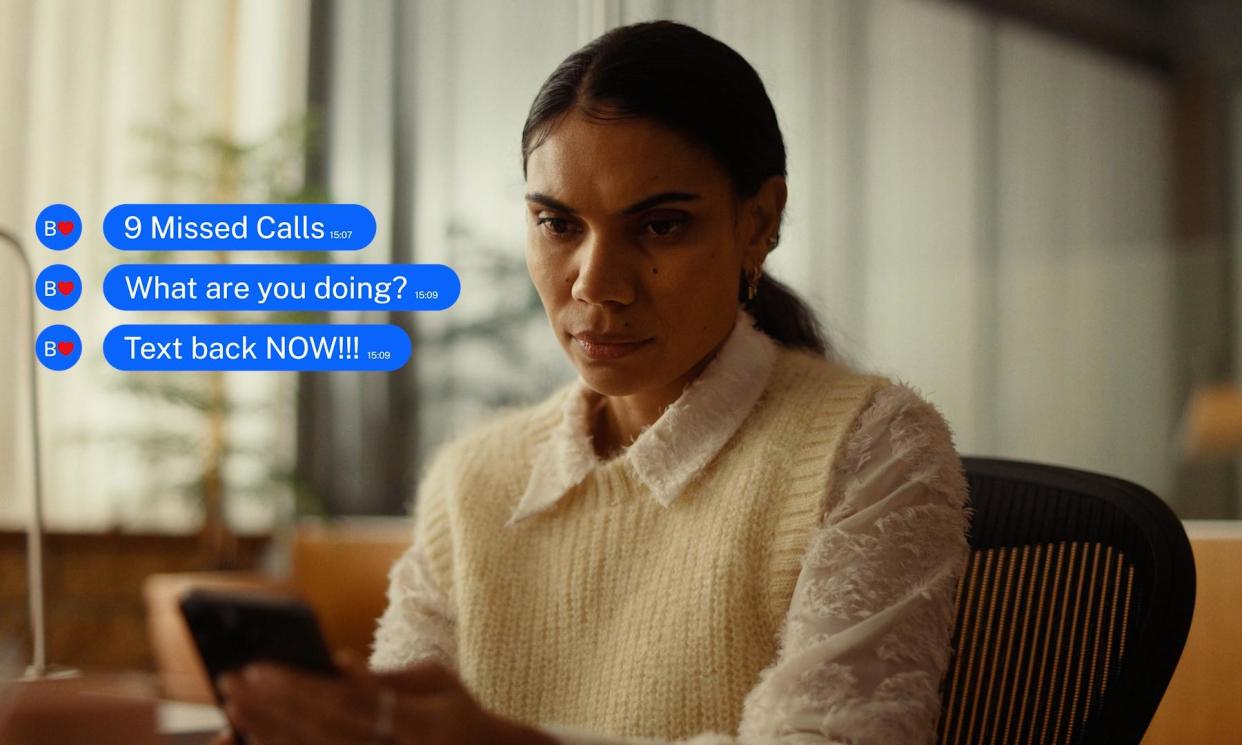If NSW’s coercive control ads work, more funding will be needed as victims come forward, advocates say

Domestic violence New South Wales says the sector needs more funding to deal with an expected increase in demand after the launch of the state government’s new campaign against coercive control.
The government on Wednesday launched the campaign on a suite of platforms using the tagline: “It’s not love, it’s coercive control. Know the signs of abuse.” The aim is to educate people on the patterns of abusive behaviour.
From July, NSW will be the first state to make coercive control – which can include financial abuse, threats, or isolating or tracking someone – a standalone criminal offence.
The deputy chief executive of DVNSW, Elise Phillips, said the legislation and awareness campaign were crucial. But with services already struggling to meet demand and vulnerable women and children being turned away, a boost in funding was also needed, she said.
“When people realise ‘What I’m going through here is not OK, this is abuse’, they are more likely to reach out for support and we need to make sure our service can respond to that need,” Phillips said on Wednesday.
DVNSW, which is the peak body for domestic violence in the state, is urging the state government to commit at least $145m for domestic and family violence in the June budget. NSW spends less than half what Victoria does on domestic and family violence services, despite the larger population, according to DVNSW.
Related: Australian government pledges almost $1bn to help women leave violent relationships
On Wednesday, the federal government announced it would commit $925m over five years to permanently establish a payment of up to $5,000 to help victims of violence leave an abusive relationship.
The NSW deputy premier, Prue Car, said the need for urgent action on women’s safety had come into “sharp focus” in recent weeks.
“This is just part of what the NSW government is doing to address the longstanding cultural reasons that we end up in these terrible situations,” Car said.
The state government will hold an emergency cabinet meeting on Friday focusing on domestic and family violence.
Last week, the Minns government announced a review of bail laws after Molly Ticehurt’s alleged murder by her ex-partner while he was on bail for stalking and raping her.
“There are many, many levers that we can pull as a state government and we are committed to looking at absolutely everything because we just cannot continue to have women in NSW die at the hands of those who have purported to love them,” Car told reporters speaking generally.
State Greens MP Abigail Boyd opted not to attend Wednesday’s campaign launch stating she didn’t want to “show support for a strategy that didn’t include funding to tackle domestic and family violence”.
“My office is inundated with calls from domestic and family violence services having to turn people away because they have insufficient funding,” Boyd said. “While NSW is underfunding the sector it is leaving women and children with nowhere to turn.”
The chief executive of Full Stop Australia, Karen Bevan, told reporters at Wednesday’s campaign launch that her service regularly received calls from women suffering from coercive control who knew something wasn’t right “but it’s hard to put your finger on”.
“What we know is that the better we educate the whole community about what coercive control looks like, the better we will do … in enabling women to name what’s going on in their relationship [and] to seek help from people like us,” she said.

 Yahoo News
Yahoo News 
